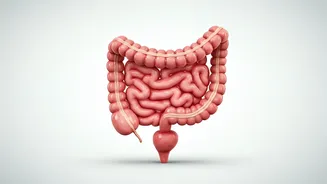Importance of Bowel
Bowel health is fundamentally linked to overall wellness, extending far beyond the simple function of digestion. A healthy bowel is essential because it
is the cornerstone of nutrient absorption. It is where your body extracts vital nutrients from food, feeding the cells and fueling all bodily functions. A well-functioning bowel effectively eliminates waste products, and in doing so, it protects your body from toxins. This process minimizes inflammation and supports immune health. It also impacts the balance of gut bacteria, influencing mood and cognitive function. Therefore, prioritizing bowel health through informed lifestyle choices is an important investment in your overall wellbeing.
Factors Affecting Health
Various factors can significantly affect your bowel health. The foods you consume exert a strong influence, with diets rich in processed foods, unhealthy fats, and added sugars often leading to inflammation and digestive issues. Conversely, a diet rich in fiber, fruits, vegetables, and whole grains promotes optimal bowel function. Stress and lifestyle habits also have a significant impact. Chronic stress can disrupt the gut microbiome and slow down digestion. Regular physical activity, adequate hydration, and sufficient sleep are critical for supporting regular bowel movements and overall gut health. Medications, especially antibiotics, can also disrupt the balance of gut bacteria, potentially leading to digestive problems. Being aware of these elements helps you make informed choices to safeguard your bowel health.
Diet and Nutrition
Nourishing your bowel with the correct diet is crucial for maintaining its health. Prioritize a high-fiber diet to support regular bowel movements and prevent constipation. This includes consuming plenty of fruits, vegetables, and whole grains, such as oats and brown rice. Probiotic-rich foods, like yogurt and fermented vegetables, help foster a balanced gut microbiome by introducing beneficial bacteria. Hydration is also vital; drinking enough water softens stool, easing its passage. Limiting processed foods, sugary drinks, and excessive fats is equally significant. These can lead to inflammation and disrupt digestion. The most effective approach is to adopt a balanced and varied dietary pattern that helps meet your body's nutritional requirements and promotes a robust gut.
Hydration and Exercise
Adequate hydration and regular exercise are two vital components of a healthy bowel. Water plays a crucial role in softening stool, making it easier to pass. Dehydration can lead to constipation and discomfort. Aim to drink sufficient water daily, adjusting intake based on activity level and environmental conditions. Regular physical activity stimulates the digestive system, promoting better bowel function. Exercise helps to move food through the digestive tract and prevents sluggishness. Activities such as brisk walking, running, or swimming can improve bowel health. Incorporating both adequate hydration and regular physical activity into your daily routine supports overall digestive health and encourages regular, comfortable bowel movements, fostering overall wellness.
Stress Management
Managing stress is an essential aspect of maintaining bowel health. Chronic stress can negatively impact the gut, leading to digestive issues and imbalances in the gut microbiome. Identifying and reducing stressors is therefore crucial. Techniques such as mindfulness meditation and deep breathing exercises can help regulate the body's response to stress, supporting digestive health. Yoga and other relaxation practices can also promote a sense of calm and reduce stress-related digestive symptoms. Prioritize getting enough sleep, as sleep deprivation can increase stress levels. Incorporating stress-reducing activities into your daily routine is an effective way to improve bowel function and overall well-being. Finding healthy ways to manage stress enables you to support gut health and maintain a balanced internal environment.
When to Seek Help
It is essential to know when to seek professional medical advice regarding your bowel health. While occasional digestive issues are common, certain symptoms can indicate underlying problems that require medical attention. Persistent changes in bowel habits, such as diarrhea or constipation lasting for several weeks, should be evaluated by a healthcare provider. Blood in the stool, unexplained abdominal pain, bloating, and significant weight loss are also warning signs that warrant prompt medical consultation. Early diagnosis and treatment of conditions affecting the bowel, like Irritable Bowel Syndrome (IBS) or inflammatory bowel disease (IBD), can improve quality of life and prevent serious complications. Regular check-ups and open communication with your doctor are important for addressing any concerns and maintaining optimal bowel health.























